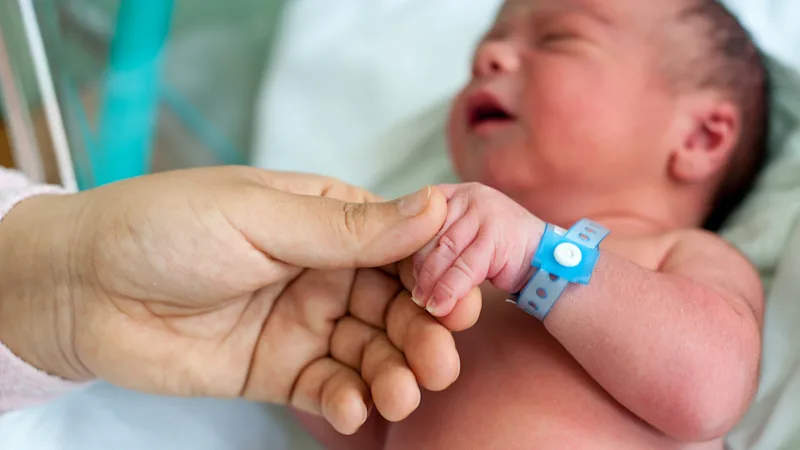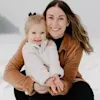When to Seek Immediate Medical Attention and Practical Ways to Reduce Risk
In the two previous blog post, we discussed common symptoms of Respiratory Syncytial Virus (RSV) and shared general guidelines on when you might want to consult your pediatrician. In this third installment of our RSV series, we're diving into the warning signs that indicate a critical emergency, as well as some preventive measures you can take to protect your baby.
To watch the complete RSV webinar session with Dr. Steven Goudy, please click here.
Critical Emergency Signs
While it's always important to consult your doctor when in doubt, some signs are immediate red flags that your child needs urgent medical attention. These can include:
- Dehydration: If your baby is not eating well or not having normal wet diapers, this could be a sign.
- Rapid or difficult breathing: Watch out for an accelerated breathing rate and signs of struggle.
- Bluish discoloration on the lips: This is an urgent sign that your baby may not be getting enough oxygen.
- Lethargy: Lack of energy or responsiveness can be a significant concern.
- High Fever: Especially if this triggers a seizure (febrile seizure), which happens when a high fever causes your child to have a seizure.
Remember, the severity of symptoms often depends on your baby's age, so guidelines given by your pediatric providers are crucial. For instance, a 102°F fever may be more concerning in a two-week-old than a six-month-old.
Preventing RSV Infections
When it comes to prevention, start by consulting your pediatric healthcare provider, especially if your child is premature, has congenital heart disease, or any immune system differences.
Handy Tips for Parents:
- Hand-Washing: It's a simple but effective way to reduce the risk.
- Limited Face Kissing: Contrary to social media memes, it’s advisable to limit the number of people kissing your baby's face, particularly strangers.
- Stay Informed: Keep tabs on local community health reports. Websites like the CDC offer data on rising cases of illnesses like RSV.
- Avoid High-Risk Areas: Think twice before going to places like children's playgrounds or entertainment centers, especially when the illness is widespread in your community.
"I am not saying that parents can't kiss their babies but I would just say look, it's a personal choice. Right? A lot of people don't know if they're sick. Particularly if they're under a year of age that's a super helpful and a guideline I recommend people following. Maybe a quick, hard conversation with your friends and family, but hopefully people understand that you're trying to prevent illness." said Goudy.
New Medications on the Horizon
There are some promising new medications in the market to help reduce the likelihood of RSV infection or at least decrease its severity if your child does contract it. So stay tuned for updates in this area.
You can read more about the RSV medication here.
“RSV can cause serious disease in infants and some children and results in a large number of emergency department and physician office visits each year,” said John Farley, M.D., M.P.H., director of the Office of Infectious Diseases in the FDA’s Center for Drug Evaluation and Research. “Today’s approval addresses the great need for products to help reduce the impact of RSV disease on children, families and the health care system.”
Remedies and Nasal Hygiene
Proper nasal hygiene can alleviate some of the symptoms. Saline solution can be effective for breaking up mucus, making it easier to remove with a suction device. Such preventive measures may also lower the chances of subsequent infections like sinus or ear infections.
Note: If you're unsure whether your child has RSV or another illness like pertussis (whooping cough), tests like a respiratory viral panel can provide a quick diagnosis.
In conclusion, while RSV can be concerning, knowing the warning signs and preventive measures can arm you with the tools you need to best protect your child. Your pediatric healthcare providers are your best source of advice tailored to your child's specific needs.
Part I: Preparing for Baby's First Year: Expert Advice on RSV and Winter Wellness
Part II: Parent's Guide to RSV and Allergies: Tips from a Pediatric ENT
.png)
Disclaimer: All material on this website is provided for your information and education only and may not be construed as medical advice or instruction. No action or inaction should be taken based solely on the contents of this information; instead, readers should consult appropriate health professionals on any matter relating to their health and well-being. This information isn’t intended to diagnose, treat, cure, or prevent any condition or disease, nor is it medical advice.


